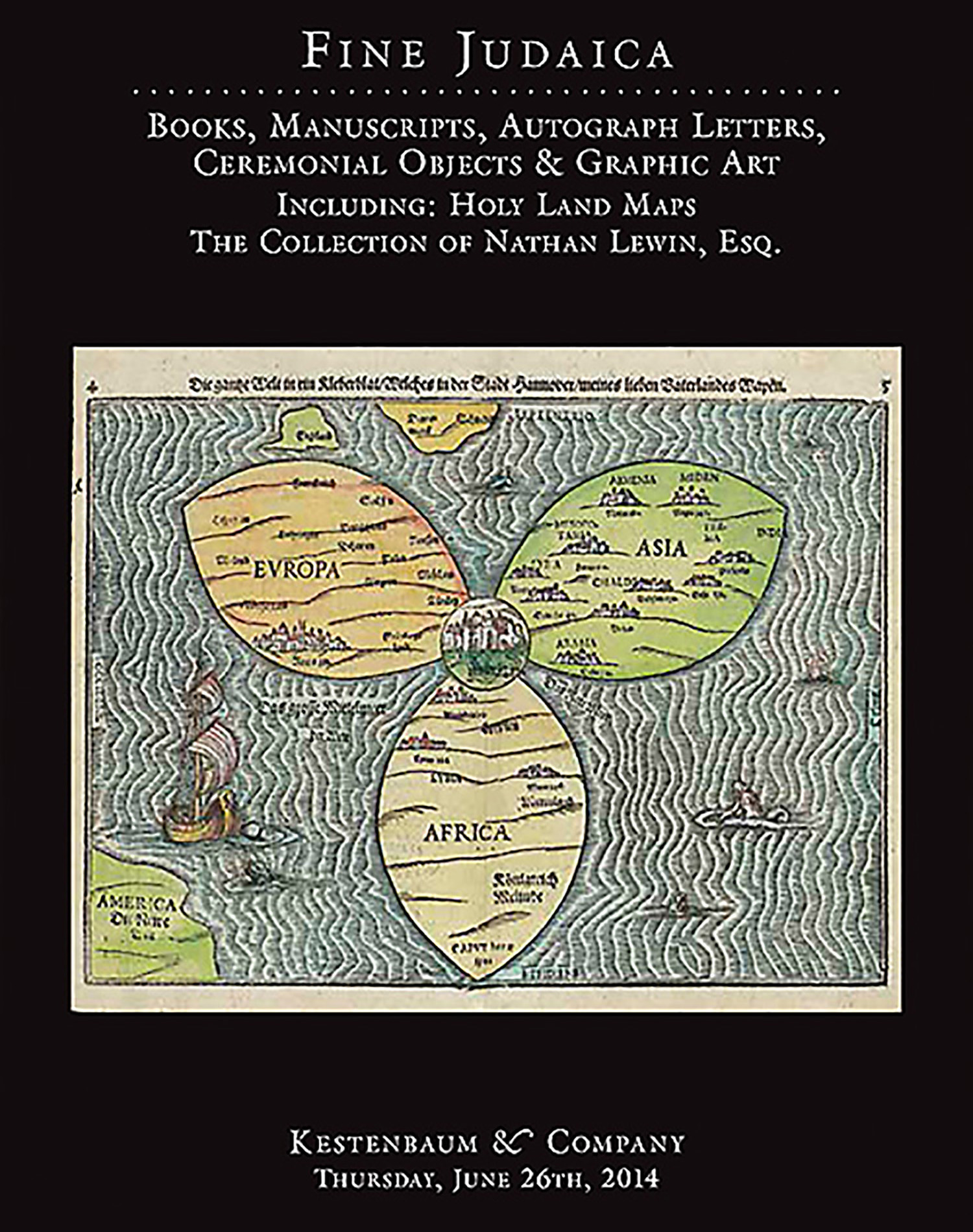(AMERICAN JUDAICA).

AUCTION 62 |
Thursday, June 26th,
2014 at 1:00
Fine Judaica: Books, Manuscripts, Autograph Letters, Graphic and Ceremonial Art
Lot 12
(AMERICAN JUDAICA).
Cincinnati: 31st August 1871
Est: $8,000 - $10,000
PRICE REALIZED $8,500
<<An important letter by Rabbi Max Lilienthal regarding Reform practice.>>
The Chestnut Street cemetery, the oldest Jewish cemetery west of the Allegheny Mountains, was used by the Jewish community of Cincinnati until 1849, after which it was closed due to the large number of burials following an outbreak of cholera. The following year, the Jewish community opened a new cemetery, Walnut Hills. After years of contentious deliberation it was agreed to relocate all the remains from the old cemetery to the new one, a controversial decision made by Rabbi Max Lilienthal and fully endorsed by Rabbi Isaac Mayer Wise. Indeed Lilienthal’s final paragraph in the present letter notes: “You have also requested me to beg Rev. Dr. Wise, to give his opinion in regard to the pending question… He considers the intended disinterment not only a Mitzvah [Hebrew], but an honor to those that are buried.” Clearly Lilienthal felt that Wise’s opinion was crucial in influencing communal views on this along with so many other matters relating to tradition and community.
See J. D. Sarna and N.H. Klein, The Jews of Cincinnati (1989) p. 46 who notes that the decision was ultimately never actualized due to the objection of one family and thus the lack of complete unanimity on the matter.
Max Lilienthal (1815-82) was a German-born adviser for the reform of Jewish schools in Russia and later a rabbi and proponent of Reform Judaism in the United States. Lilienthal served as a rabbi for several years after his arrival in New York City in 1845, including at the Anshe Chesed Synagogue. He opened a Jewish school in 1850. In 1855, he moved to Cincinnati to become an editor of The American Israelite and serve as rabbi of Congregation Bene Israel.
The most prominent lay leader of Congregation Bene Israel through the second half of the 19th century was one of Cincinnati’s leading citizens, Julius Freiberg (1823-1905). A close ally of Max Lilienthal, Freiberg had overseen the transition from “shul” to temple and the consolidation of Reform practice within the worship service. As president of the Union of American Hebrew Congregations, he also advocated the Lilienthal-Wise version of American Judaism on the national level. Freiberg was by trade a distiller, and he understood that his leadership in the Jewish community was an intrinsic part of his general status within the broader Cincinnati community. He achieved enviable success in both realms, so much so that the Cincinnati Chamber of Commerce and Merchants’ Exchange in eulogizing him declared that “no merchant, manufacturer or citizen of our beloved Cincinnati has contributed more to its good name, its development, growth and prosperity than did he.” (See American Congregations, Volume 1: Portraits of Twelve Religious Communities. Wind & Lewis (Eds.) 1998, p. 188).
